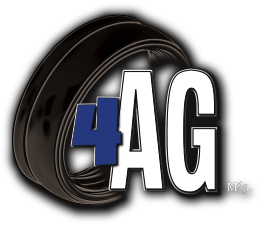Can Closing Wheels Really Boost No-Till Planting Results?
In recent times, agricultural practices have faced significant upheavals due to unpredictable weather patterns. Farmers have had their resilience tested, with excessive rain and snow altering the landscape of traditional farming methods. Amidst these challenges lies a silver lining—an opportunity to explore no-till farming, a technique that might just revolutionize your approach to agriculture. As we delve into the world of no-till, consider how the adoption of this method, particularly the integration of closing wheels for no-till planters, could be a game-changer for your farming practices.
The No-Till Advantage
No-till farming, a practice where the soil is left undisturbed from harvest to planting, offers numerous benefits. It enhances soil structure, improves water infiltration, and reduces erosion. By foregoing traditional tilling, you contribute to a healthier, more sustainable soil ecosystem.
Closing Wheels for No-Till Planters to Enhance Seed Placement
One of the critical components in no-till farming is the use of closing wheels for no-till planters. These specialized wheels play a vital role in ensuring proper seed-to-soil contact, which is crucial for optimal germination and growth. Their design is tailored to work efficiently in undisturbed soil, making them indispensable in a no-till setup.
The Resilience of Soybeans in No-Till
Starting your no-till journey with soybeans can be a strategic move. Soybeans are known for their robustness and ability to thrive even in less-than-ideal seed placements. This characteristic makes them more forgiving in a no-till system, especially for those new to this farming method.
Addressing Soil Compaction
Soil compaction can be a significant concern, especially after a wet season. In no-till farming, assessing the level of compaction and choosing crops accordingly is crucial. Soybeans, for instance, can help alleviate compaction and improve soil structure for future planting seasons.
Planter Adjustments for No-Till
Transitioning to no-till requires rethinking your planting equipment. Adjustments to your planter, such as calibrating row cleaners and ensuring proper seedbed preparation, are necessary steps to ensure successful no-till planting. Effective closing wheels for no-till planters become even more critical in this context, as they ensure the seed is adequately covered without compacting the soil.
Herbicide Strategy in No-Till Farming
Without the physical disruption of tillage, weed control in no-till farming relies heavily on herbicides. Tailoring your herbicide program to suit no-till conditions, including the appropriate use of pre-emergent and burndown herbicides, is essential for effective weed management.
The Economic and Environmental Upside
No-till farming is not just about overcoming weather-induced challenges; it's an investment in the sustainability of your land. By reducing fuel and labor costs associated with tillage and enhancing soil health, no-till farming can be both economically beneficial and environmentally responsible.
Pioneering Agricultural Solutions with 4AG Manufacturing
Shifting to no-till farming, with a focus on utilizing closing wheels for no-till planters, represents an innovative response to the challenges posed by changing weather patterns. This method offers a sustainable, efficient, and economically viable option for modern agriculture. Embracing no-till is not just about adapting to change; it's about being at the forefront of agricultural innovation, ensuring productivity and sustainability for generations to come. For those seeking to integrate these advanced practices, 4AG Manufacturing provides the ideal tires for closing wheels for no-till planters, aligning with the needs of progressive farming.

